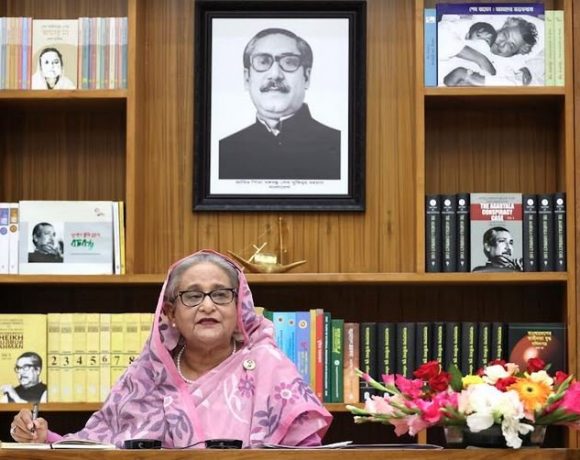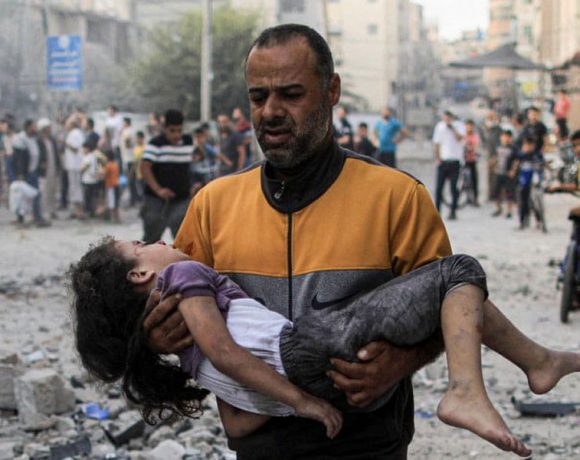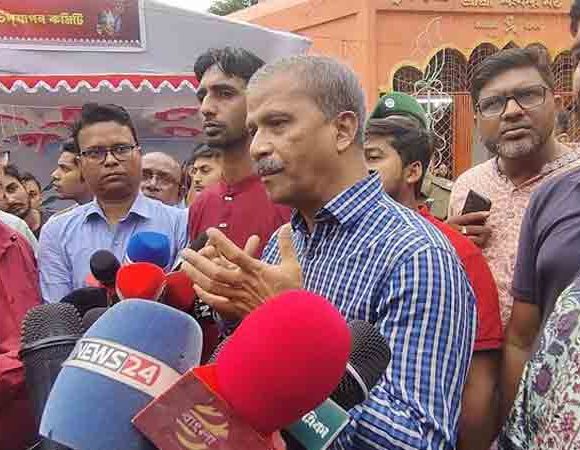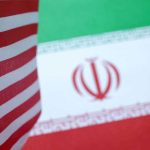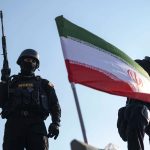Speakers call for stronger army role in Chittagong Hill Tracts
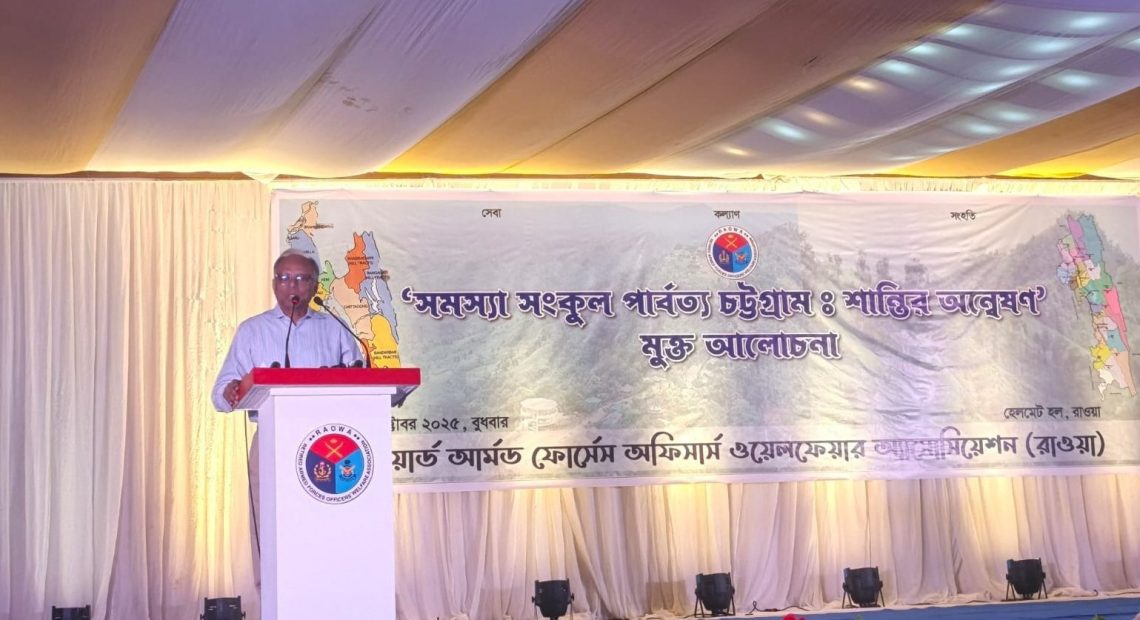
STAFF REPORTER
Speakers at a discussion in Dhaka on Wednesday said Bangladesh should strengthen its army presence in the Chittagong Hill Tracts to counter separatist violence and maintain national security.
They said the government must take a firm stance against what they described as conspiracies and insurgent activities in the region, including expanding military camps if needed.
The remarks came at a discussion titled “Problem-Ridden Chittagong Hill Tracts: Seeking Peace” held at the Retired Armed Forces Welfare Association (RAOWA) Hall in Mohakhali. The event was organised by RAWA.
Army presence ‘preserved sovereignty’
Major General (Retd) Md. Kamruzzaman presented the keynote paper. Other speakers included RAWA Chairman Colonel (Retd) Abdul Haque, former air chiefs Air Vice Marshal Altaf Hossain Chowdhury and Air Vice Marshal Mahmud Hossain, and Major Generals (Retd.) Akbar Fazle Elahi and Jahangir Kabir Talukdar.
They were joined by Amar Desh editor Mahmudur Rahman, Parbattanews.com Editor and CHT Research Foundation Chairman Mehadi Hassan Palash, CHT Sampriti Jote Coordinator Engineer Thoai Ching Mong Shak, and several former officers and researchers.
They said Bangladesh’s sovereignty in the Hill Tracts had been maintained largely because of the army’s continued deployment in the region.
400 soldiers killed in Hill Tracts conflict
RAOWA Chairman Colonel (Retd) Abdul Haque said around 400 soldiers had been killed while protecting the territorial integrity of the Chittagong Hill Tracts.
“The CHT issue is not new and remains vulnerable to international conspiracies,” Haque said. “National unity and peace are essential to safeguard the region.”
Former air chief recalls past commitment
Former air chief Air Vice Marshal (Retd) Mahmud Hossain said he witnessed the army’s sacrifices during his service between 1980 and 1987.
“That is why the Hill Tracts remain part of Bangladesh,” he said. “At that time there were about 400 army camps; the number has now declined.”
He questioned whether younger officers maintained the same level of commitment and called for restoring the “management and order” that existed in the 1980s. “Through negotiation, neighbouring countries can be prevented from exploiting the situation,” he said.
Peace accord ‘needs reassessment’
Major General (Retd) Jahangir Kabir Talukdar said there was a leadership crisis among local hill communities and accused the United People’s Democratic Front (UPDF) and neighbouring countries of spreading rumours.
He said the media often presented one-sided reports and that some intellectuals commented on the issue without full understanding. “The peace accord conflicts with the constitution and needs reassessment,” he said.
‘Issue linked to regional geopolitics’
Amar Desh editor Mahmudur Rahman said the army should be further strengthened to fight separatist groups and that its presence might need to increase.
“This is not only a CHT problem but a geopolitical issue,” he said. “Bangladesh’s state security is involved.”
Rahman alleged that India used local actors to exert influence in the region. “When a government unfavoured by India is in power, the issue is exploited,” he said.
Call for ‘zero tolerance’ against terrorism

Parbattanews.com editor Mehadi Hassan Palash said state benefits should be reserved for peaceful citizens. “Separatist terrorists must be eliminated wherever they are — in the hills, sea, jungle or caves,” he said.
He said the peace accord’s definition of the CHT as a tribal area excluded the Bengali population. “This should be treated as a national issue, not a regional one,” he said, drawing a comparison to the Rohingya crisis.
Palash urged the government to apply a “zero tolerance” approach to armed militants and ensure all state facilities go only to law-abiding citizens.
Proposal to rename CHT Ministry

Engineer Thoa Ching Mong Shak, coordinator of the CHT Sampriti Jote, proposed renaming the Chittagong Hill Tracts Ministry as the “Ministry of Small Ethnicities.”
He said small ethnic groups also lived in the plains, including Garos, Santals, Hajongs and Manipuris. “If separate ministries are not created for them, the existing one should be renamed,” he said.
He called for removing divisive terms such as “indigenous,” “tribal,” and “settler Bengali” from official usage and for allocating land to landless people from 14 ethnic groups.
“Do not centre policies only around one community,” he said. “If all ethnic groups are included, external forces will fail to exploit the Hill Tracts issue.”

